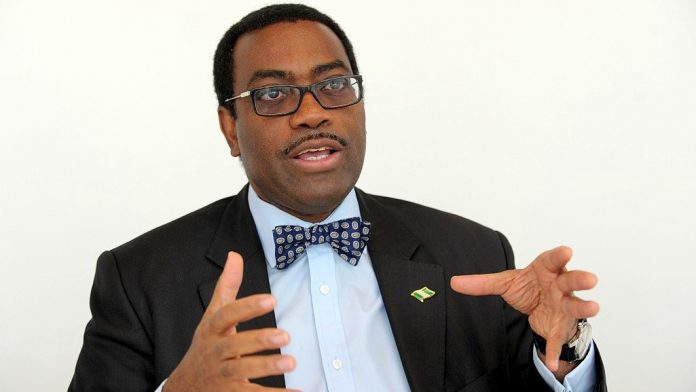

The African Development Bank (AfDB), says the issue of employment is at the top of the agenda of every African leader as the continent battles rising unemployment and under employment.
The Bank’s Senior Vice President Charles Boamah disclosed this at the unveiling of a new policy research document “Creating Decent Jobs: Strategies, Policies, and Instruments,” on Thursday.
The report elicited strong presentations and a lively debate during the event which took place in the Babacar N’Diaye Auditorium at the Bank’s headquarters, attended by senior management, diplomats, staff, and media representatives.
According to Boamah, the report was “the first of its kind in challenging and unveiling some of the misconceptions that many experts have about the nature of under-employment and unemployment in Africa.
“The report signals the start of some fresh thinking about the nature of employment creation on the continent and clarifies which development strategies and policy interventions are needed for low-income countries in Africa”, Boamah said.
He went on to predict that the report would “serve as a reference document on employment in Africa for some years to come”.
Introducing the report, Celestin Monga, the Bank’s Chief Economist, remarked that part of its appeal was in applying innovative thinking to conventional employment issues.
Monga also remarked that the official unemployment figures of many African countries were so unrealistically low that policymakers found it difficult to explain how demand for labor in markets was so buoyant.
Africa was also the world region with the highest proportion of its workforce in vulnerable employment, which served to hide rather than clarify the essential issue of employment in Africa. A new model for measuring employment that related to actual conditions in Africa was needed, he said. The report should also be seen as a manifesto for African jobs.
Finally, he praised the painstaking work of his co-editors, and particularly recommended a focus paper written by Andinet Woldemichael, principal research economist, entitled “The Missing Women in African Labor Markets” in the report.
In the face of rapidly growing populations and heightened risks of social unrest or discontent, jobless growth was the most serious concern for African policymakers, said Abebe Shimeles, manager in the Chief Economist’s complex, who spoke on the highlights of the report.
“One problem”, he added, “was already well known – that employment and unemployment needed to be more closely defined in their relative context, a task that had already caused difficulties in other development finance institutions. Traditional labour market economists were not capable of accurately defining the particular African employment phenomenon”.
In addition, he pointed out that the status of the ministries of work or labour in many African countries was often not important enough to be considered as a critical policy sector, reflecting the low priority given to making a serious difference to the continental employment challenge facing all the African countries.
PV: 0
You may be interested

Boniface Scores As Leverkusen Beat Bochum, Close In On Bayern Munich
Webby - March 28, 2025Victor Boniface was on target for Bayer Leverkusen in their 3-1 home win against Bochum in the Bundesliga on Friday…

NPFL: Defeat To Kwara United Painful — Nasarawa United Boss Yusuf
Webby - March 27, 2025Nasarawa United head coach Salisu Yusuf has reacted to his team’s 1-0 loss to Kwara United, reports Completesports.com. Emeka Onyema…

Cote d’Ivoire Withdraw As Host Of U-20 AFCON
Webby - March 27, 2025Cote d’Ivoire announced late Tuesday its withdrawal from hosting the 2025 U-20 Africa Cup of Nations just weeks before the…




















![American Pastor, David Wilson Seen Eating The Box Of Woman Who Isn’t His Wife [Video]](https://onlinenigeria.com/wp-content/uploads/2019/10/american-pastor-david-wilson-seen-eating-the-box-of-woman-who-isnt-his-wife-video-150x150.jpg)









